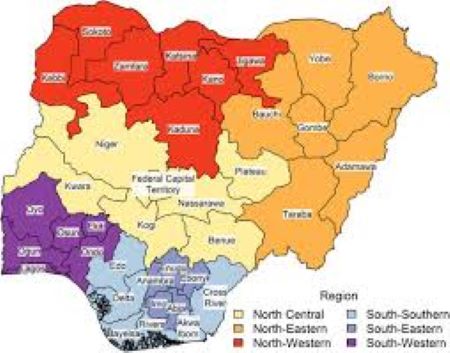Today, the specter of a deliberate destabilization agenda looms ominously over Nigeria, one that appears specifically aimed at its solid mineral wealth. Despite warnings from experts, the Nigerian government remains hesitant to fully acknowledge the precariousness of the situation.
Nigeria’s geographic expanse, from the arid North—home to the Chad Basin’s hydrocarbon reserves—to the mineral-rich states of Zamfara, Kogi, Kwara, and Plateau, presents a paradox of potential and vulnerability. This wealth in resources—Gold, Bauxite, Iron Ore, and Lithium—has become a double-edged sword: attracting both legitimate investment and insidious foreign interests.
The ongoing crisis in the Democratic Republic of the Congo (DRC) serves as a cautionary tale. Like the DRC, Nigeria is at risk of becoming a resource battleground, where every mineral deposit could spark conflict. Though the Niger Delta is often seen as the epicenter of insecurity, it is but one fragment of a nationwide threat fueled by resource wealth.
This irony is central to Nigeria’s dilemma: the very resources that could secure prosperity are the same ones that invite exploitation. Western imperialist forces, often disguised as venture capitalists, view Nigeria’s assets not as opportunities for partnership but as spoils to be seized. This mindset perpetuates cycles of corruption, where local leaders—either complicit or coerced—serve as pawns in a wider geopolitical game.
The pattern is clear: whether through hostile corporate takeovers or violent community incursions, Nigeria’s resources are being targeted. International calls for “guiding Africa” in resource management often mask exploitative intentions. Thus, the onus falls on Nigeria to reclaim its agency and set the terms of engagement with the global community.
To counter this threat, Nigeria must take a proactive stance. It must reframe its narrative, viewing its resources not as liabilities to be exploited but as strategic assets to be leveraged. One effective strategy is to introduce competitive bidding rounds that engage multiple global actors. This would foster a competitive environment and signal that Nigeria understands its value—and the lengths to which others will go to secure its wealth.
While asserting national agency is vital, Nigeria must also confront the reality of its limited capacity to fully process and benefit from its mineral resources. Without the necessary technology and expertise, international partnerships are not just optional—they are essential. But such collaborations must be based on equity, transparency, and national interest.
Creating a favorable investment climate is also key. This entails robust regulatory frameworks that promote transparency, accountability, and equitable resource distribution. Nigeria must attract foreign partners genuinely interested in development—not domination.
Diplomatically, Nigeria should engage in strategic dialogues that present a clear vision for resource use and national development. Economically, it must use its resource wealth to fuel sustainable growth. Socially, the country must invest in capacity building—ensuring that local communities are empowered to participate meaningfully in managing their resources.
Regional cooperation is equally crucial. By collaborating with neighboring countries, Nigeria can form a unified front in resource diplomacy—strengthening collective bargaining power on the global stage.
In conclusion, Nigeria stands at a critical crossroads, grappling with both external threats and internal mismanagement. The deliberate destabilization targeting its mineral wealth is not just a political concern—it is an existential one. However, through proactive, strategic, and inclusive resource management, Nigeria can reclaim its future.
The time for action is now. Nigeria must rise above the shadow of exploitation and chart a new course—one that transforms its mineral wealth into a foundation for peace, prosperity, and national pride.


